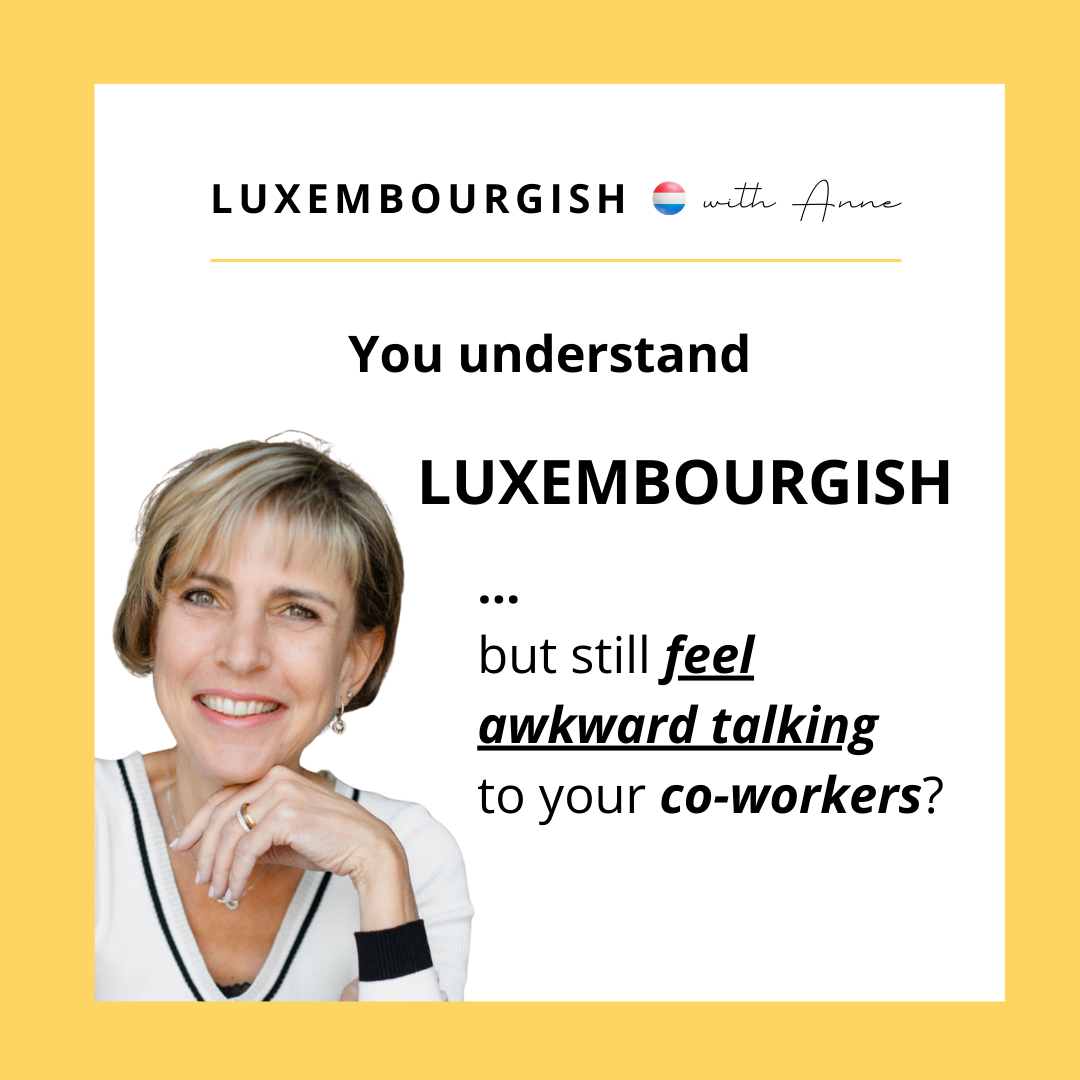You will come across the word schonn very often. Schonn like some other words in Luxembourgish has more than one meaning.
Sometimes schonn doesn’t mean anything at all – at least not anything that can be simply translated by a single English word.
It may add emphasis, indicate impatience, or just be a filler, a particle.
But in general the word schonn has over a dozen different meanings or functions. Translated into English, schonn can become any of these words:
already, as early as, before, ever, just, okay, quite, really, very, yes-but, yet.
Let’s concentrate in this lesson on the 8 meanings of schonn you must know.
1. schonn – already
This is the most common meaning and the one that beginners usually learn first. But even in the basic meaning of already, schonn is often not translated into English. In some of the following examples, English either ignores schonn or uses a word other than already:
Beispiller (examples):
- Ech hunn dir dat schonn dräimol gesot. – I’ve already told you that three times.
- Hutt dir dat scho* gelies? – Have you read that already?
- Hatt ass schonn do! – She’s here (already).
- Ech waarde scho säit Wochen. – I’ve been waiting for weeks now.
*schonn is subject to the n-rule. Listen carefully the pronunciation of scho
2. schonn (eemol) – before
This expression with schonn usually means before:
Beispiller (examples)
- Ech hunn dat schonn eemol héieren. – I’ve heard that before.
- Wie vun iech war schonn eemol am Wantersport? – Which one of you has ever been in the winter sports (before)?
3. schonn (erëm) – again
You will often hear native speakers say scho rëm. So they won’t pronounce the e from erëm and then they will drop the 2 n of schonn. Listen carefully how it sounds:
Beispiller (examples)
- Do ass hatt schonn erëm. – There she is again./She’s back again.
- Wat? Scho rëm? – What? Again?
4. schonn (in questions) – yet, ever
In a question, schonn may be translated into English by yet, ever, or earlier than expected. But sometimes it is left untranslated.
Beispiller (examples)
- Bass du scho fäerdeg? – Are you finished yet?
- Kënnt hien haut schonn? – Is he coming today?
- Waart Dir schonn do? – Have you ever been there?/Have you been there (yet)?
- Muss du scho goen? – Do you have to go yet (so soon)?
5. schonn – all right / don’t worry
Schonn used with “the future tense” can convey the idea of encouragement, certainty, or lack of doubt:
Beispiller (examples)
- Du wäerts den Test scho packen. – You’ll pass the test, for sure/don’t worry.
- Hie wäert scho gesinn. – He’ll see (all right).
- Maach der keng Suergen. Ech wäert schonn oppassen. – Don’t worry. I’ll watch out (all right/okay.)
6. schonn – yes, but …
Schonn can indicate reservations, uncertainty, or limitations. In such cases, the schonn phrase is usually followed by awer / mee (but).
Beispiller (examples)
- D’Stad ass jo schonn eng schéi Stad, awer… – Sure, Luxembourg city is a beautiful city, but…
- Do hues du scho Recht, mee… – Yes, you’re right, but…
- Dat schonn, awer… – That may be, but…
7. schonn – as a filler word / particle
In some Luxembourgish idiomatic expressions, schonn is just a filler that sounds good and is usually not translated into English.
Beispiller (examples)
- Scho gutt! – Okay! All right!
- Mir wäerte scho gesinn. – We’ll see (about that).
- Ech versti schonn. – I understand./I get it.
- Merci, et geet schonn. – Thanks, I’ll/we’ll manage (okay).
8. Expression
And remember this commonly used expression by native speakers:
- Dat ass scho laang hier! – That’s a long time ago!
As you might have realized, it is crucial to learn each word in its context. Vocabulary lists can only be a rough guide through the vast jungle of the Luxembourgish language. Don’t try to learn these all at once. Now you might at least faintly remember having heard a meaning of schonn when you encounter it in an unusual situation.
Take your Luxembourgish to the next level with LWA’s self-paced online courses
Let’s practice:
Translate the following sentences into Luxembourgish:
-
- Have you ever been to Croatia (informal)?
- Yes, but it is so beautiful there.
- You can already start to cook, I’ll be in 5 minutes at home.
Check the solution by downloading the PDF and practice with MORE sentences to translate !
Get the PDF!
I hope you liked it and found it useful. And …. why not sharing this lesson with your friends:-)




